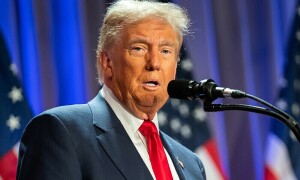Undue concentration of economic power provision: proposed law seeks annulment of provision
The new fair competition law has sought the abolishment of "undue concentration of economic power" provision, specified in the Monopolies and Restrictive Trade Practices (Control and Prevention) Ordinance (MRTPO) 1970, to attract maximum foreign investment into the country.
Sources told Business Recorder on Saturday that the existing law has specified certain circumstances leading to "undue concentration of economic power" under the MRTPO. It would cover an undertaking where the total value of assets is not less than Rs 4 billion or other amount as the Authority may prescribe and which is not owned by a public company, or is owned by a public company in which any individual holds or controls shares carrying not less than 50 percent of the voting power in the undertaking.
Undue concentration of economic power would also constitute if there are any dealings between associated undertakings which have or are likely to have the effect of unfairly benefiting the owners or shareholders of one such undertaking to the prejudice of the owners or shareholders of any other of its associated undertakings, the law adds.
According to sources, this provision is not required to be applicable in the new law, for which relevant section would be withdrawn in the ''competition'' law.
The existing provision of "undue concentration of economic power" does not have significance, keeping in view government policy to attract foreign investment. The government wants to promote foreign investment as well as individuals operating in Pakistan and any law hindering such process need be abolished.
Sources said that the Monopoly Control Authority (MCA) would also withdraw any case pending at the level of judicial fora, if any, pertaining to the provision of "undue concentration of economic power" under (MRTPO) 1970. However, this specific section of MRTPO 1970 would only be repealed on promulgation of ''competition law''.
It may be recalled that the proposed law seeks to prohibit abuse of market dominance, anti-competitive agreements, deceptive market practices, and mergers of undertakings that substantially reduce competition.
It avoids procedures that may pose unnecessary transaction or compliance costs on firms; obstacles to beneficial mergers and acquisitions and unnecessary on innovative horizontal and vertical arrangements among the competing firms.






















Comments
Comments are closed.